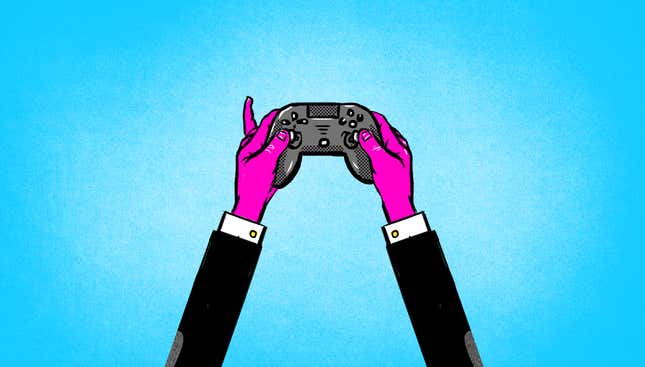
My favorite film critic, A.O. Scott of the New York Times, is trying to reclaim the word “snob” for people of discernment. “If the words nerd and geek can be rehabilitated—if legions of misunderstood enthusiasts can march from the margins of respectability to the heart of the mainstream—then why not snob as well?” he pleaded in the Times on Sunday.
To Scott, a snob is a person with taste (the “good” is implied when a snob says “taste”), someone who knows that some pleasures are better than others. His essay is half polemic, half advice column: Yes, my taste is better than yours, and here’s how to go about acquiring it. He is not defending snobbery so much as advocating for a very specific kind of snobbery.
He wants to teach you to be a good snob rather than a bad one. A snob—especially a film snob—likes Mad Max: Fury Road for its formal achievement and sneers at Oscar bait that is calculated to affirm the “prejudices and assumptions” of the viewer rather than presenting them with “real challenges or true pleasures.” At the same time, a snob watches foreign films and reads Susan Sontag.
Video games are certainly afflicted with more than their share of bad snobs. If you are the type of player who writes “Git gud” in the comments or dismisses entire swaths of the medium as “not real video games,” then yes, I’m talking about you.
Yet even with all the bad snobs, games have far too few of the good kind. In the interest of advancing Scott’s war for snobbery, here are some rules to follow if you want to be a True Video Game Snob. Join us!
1. A snob does not care which corporation published a game.
If you think it’s OK to dismiss all of Microsoft’s—or Apple’s, or Sony’s, or Nintendo’s, or Activision’s, or Electronic Arts’—video games because of your visceral reaction to the name of a particular profit-maximizing corporation, then you are the opposite of a discerning player. A snob plays the best games across all platforms, from PC to console to mobile.
2. A snob does not care how much it cost to make the game, or how many people worked on it.
This cuts both ways. If you admire only low-budget indies, you’re as much of a philistine as the player who can’t be bothered with the small, experimental stuff. Sometimes a blockbuster game is a masterwork. Sometimes a well-meaning indie game that one or two people spent years of their lives making is a turkey.
3. A snob does not care whether a video game is an according-to-Webster “game.”
Video games are creative works that are interactive and digital. They include walking simulators, first-person shooters, Twine stories, endless runners, and Madden NFL. There are terrific examples and not-so-terrific examples of each. Being a snob is about being able to see, and explain, the difference.
4. A snob plays old games as well as new ones.
Like readers and filmgoers, video game snobs must acquaint themselves with the classics. Now excuse me, I need to go play System Shock for the first time.
5. A snob reads the credits.
Video games are made by soulless corporations, but they are also made by people. A snob tries, perhaps futilely, to identify the people who make the best games and to follow their careers. You can, I admit, stop watching when the credits no longer include the contributors to a particular game and instead start itemizing the residents of the C-level suites at the multinational publisher.
6. A snob does not care about Metacritic.
Taste is not algorithmic, nor is it democratic. C’mon, we’re snobs!
7. A snob doesn’t leap to outrage.
The snob does not freak out over box art, or trailers, or other forms of advertising that are not video games. The snob can feel deeply—anger, joy, sadness—about an actual game. Even then, a snob doesn’t panic when a game seems puerile and doesn’t fume when the masses disagree. A snob is patient. A snob is kind. A snob is not jealous. Wait, that’s love, in St. Paul’s first letter to the Corinthians.
8. A snob looks down on players who don’t take games seriously.
Video game players who insist that games are “just fun” and therefore are immune to analysis or even smart conversation—or worse, who believe games are so fragile that an Anita Sarkeesian video could rid the world of them—deserve a mixture of scorn and pity. Games are among the most meaningful and important ways we choose to spend our time. How could we not have opinions about them that are worth sharing and contesting? (I repeat: We’re snobs!)
9. A snob looks down further on people who don’t play games.
The infidels are worse than the heretics. The real philistine is the politician who talks about “video games” as an improbable monolith, or the TV viewer who watches House of Cards without knowing that The Stanley Parable and Monument Valley are not merely real video games but also bestselling and amazing ones. The least discriminating person in the conversation around video games, the one with the least discernment and the most deserving of our derision, is the one who manages to be ignorant yet contemptuous of the world’s most vibrant, most interesting creative form.
Chris Suellentrop is the critic at large for Kotaku and a host of the podcast Shall We Play a Game? Contact him by writing chris@chrissuellentrop.com or find him on Twitter at @suellentrop.
Illustration by Jim Cooke

